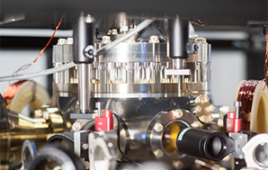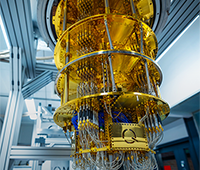Suicide Bacteria Kill Superbug
Scientists from Nanyang Technological University (NTU) have re-engineered a common bacterium, turning it into a “suicide bomber” against a superbug which is naturally resistant to a wide range of antibiotics.
For the first time, scientists are able to modify a harmless strain of Escherichia coli (also known as E. coli) found naturally in the human digestive system to seek out and kill other dangerous bacteria.
The targeted superbug, known as Pseudomonas aeruginosa, is a bacterium which causes infections, such as upper respiratory tract infection, gastrointestinal tract infection and urinary tract infection.
The biochemically engineered E. coli, upon detection of the other bacterium, will generate “killing molecules” within them, and will self-destruct, releasing the molecules to kill the aeruginosa. These “killing molecules” are deadly for the superbug, but harmless to the human body.
This breakthrough in fighting diseases may very well change the way medical treatment is currently done in hospitals as, unlike today’s broad-spectrum antibiotics which kill both good and bad bacteria, this revolutionary method is a precise approach targeting only harmful bacteria.
The modified E. coli is also envisioned by the researchers to be effective in the prevention of infections. For example, the engineered bacteria can reside in the human body, similar to how good bacteria, such as those found in probiotic yogurt drinks can reside in the digestive systems.
The scientists who made the breakthrough are Assistant Professor Matthew Chang and Assistant Professor Poh Chueh Loo from NTU’s School of Chemical and Biomedical Engineering.
Their findings, a result of over two years of research, were published in August 2011 in Molecular Systems Biology, a journal under the Nature publishing group. Since then, the biomedical industry has taken a keen interest in the published paper, as there are almost no other effective alternatives to antibiotics against superbugs.
Lead researcher Chang says their engineered bacteria have inhibited the growth of the aeruginosa by 99 percent in tests. Simply put, if the bad bacteria cannot grow, infections would not develop.
This effectiveness is what garnered the interests of doctors, who are on the lookout for innovative ways to combat infection — one of the world’s leading causes of death.
Co-lead researcher Poh added that this success is very much a proof-of-concept, demonstrating a revolutionary way in which bacteria can be engineered to fight other bacteria. It also is possible that, in the future, modified bacteria can be engineered to kill other types of bacteria and even cancer cells using the same framework.
Chang said their idea stemmed from their previous studies of microbiology, where they observed that, under adverse competition, bacteria secrete toxins to kill other bacteria in their bid for survival. In a separate observation, they also found that bacteria had the ability to communicate and sense other bacteria around them.
The next phase of the research is to refine the efficiency of the killing molecules and to find other possible targets. The researchers expect that they will soon move into animal trials.



